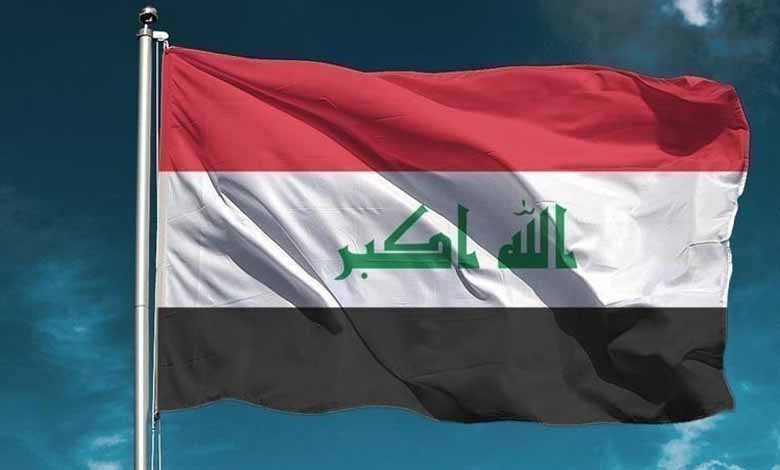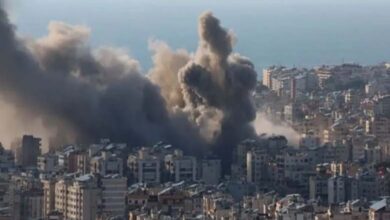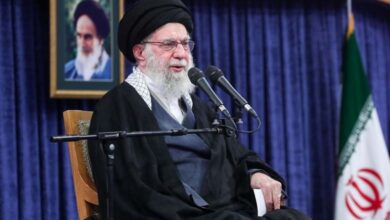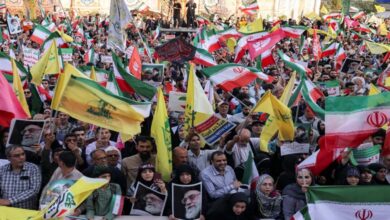Iraq: Iran militias foment strife to pass their plans to control the government

Iran continues to carry out its plans to spread chaos in Iraq and continues its interventions to expand its sphere of influence by fueling internal conflicts to foil political solutions that lead the country to relative stability. Tehran is using its political arms and affiliated gangs to spread tension and conflict in the Iraqi skies.
Rejecting Tehran’s candidate
Tensions have been rising in Iraq amidst political stalemate since the last Iraqi elections last October. Since the elections, Iraq has been facing challenges in forming the Iraqi government, in addition to choosing a president who would endorse the Iraqi prime minister. Efforts to form a new government in Iraq have been stalled day after day since the last parliamentary elections, in which the Sadrist movement won a majority. However, the leader of the Sadrist movement announced the resignation of his deputies from the Iraqi parliament and his withdrawal from forming the Iraqi government and joining the ranks of the Iraqi people.
In the context of escalating tensions and Iran’s demonstration of its plans to seize power in Iraq, the Coordination Framework, one of the largest Shiite forces inside Iraq, unanimously announced over the past two days the nomination of Mohammed Shia’ Al Sudani to head the next government during his meeting at the house of the leader of the “Iranian Conquest Alliance” Hadi al-Ameri in Baghdad, after the withdrawal of the first-tier leaders such as Nouri al-Maliki, Haider al-Abadi, Hadi Al-Amiri, and Falih Al-Fayyadh from the Current.
The reactions to Al Sudani varied, especially from the leader of the Sadrist Movement, Muqtada al-Sadr, as Al Sudani is a former leader in the Dawa Party. During the past years, Al-Sudani took over the management of several ministries from the State of Law Coalition, led by al-Maliki, which is supported by Iran.
Protesters angry
For his part, Muqtada Al-Sadr sent bloody messages that would increase tensions and divisions in the country, as protesters stormed the Green Zone in the heart of Baghdad and the Iraqi parliament, amid calls from Al-Sadr not to harm demonstrators in Baghdad, which is the latest chapter of the political crisis in Iraq.
Iraqi Prime Minister Mustafa Al-Kadhimi called on demonstrators to withdraw immediately from the parliament building, pledging to protect state institutions and diplomatic missions.
Al-Quds Brigade
He pointed out that the security forces’ permission of demonstrators to storm the Green Zone is suspicious, claiming that he had observed “suspicious” movements and calls for inciting violence. He also held the Al-Kadhimi government fully responsible for the events in the Green Zone.
Iran’s insistence on asserting its influence within Iraqi power was evident with the arrival in Baghdad of the commander of the Quds Force of the Iranian Revolutionary Guard, Ismael Qaani, in a secret visit to hold meetings with the leaders of the Coordination Framework to ensure control over the formation of the Iraqi government.
Public anger
Iraqi security expert Adnan al-Kinani said: The Iraqi people went out in demonstrations and protests because they have reached a stage that no human can afford. The Iraqi people are facing many crises despite their enormous wealth, including the fact that Iraq is considered one of the first countries in terms of oil and other benefits that its people do not benefit from.
Al-Kinani added pointed out that they are tampering with the security of Iraq and interfering in some suspicious deals that are harmful to Iraq and its economy. He went on to say that they are creating tensions in the country, exceeding Iraqi sovereignty, and continuing to intervene under the name of freeing Iraq from corruption.












